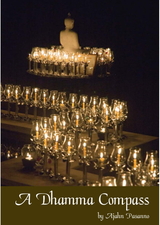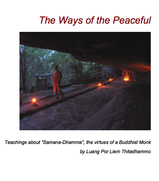[...] Wir können uns äußerst glücklich schätzen, dass der Buddhismus im Westen noch so neu ist. Viele Leute haben bereits darüber reflektiert, dass dies „die guten alten Zeiten“ sind. In 100 Jahren werden wir einen buddhistischen Präsidenten haben, es wird große finanzielle Zuwendungen von Gönnern geben und der Buddhismus wird institutionalisiert sein. Die Leute werden zu Buddhisten, um auf der sozialen Leiter nach oben zu...
තව කියවන්න
[...] Wir können uns äußerst glücklich schätzen, dass der Buddhismus im Westen noch so neu ist. Viele Leute haben bereits darüber reflektiert, dass dies „die guten alten Zeiten“ sind. In 100 Jahren werden wir einen buddhistischen Präsidenten haben, es wird große finanzielle Zuwendungen von Gönnern geben und der Buddhismus wird institutionalisiert sein. Die Leute werden zu Buddhisten, um auf der sozialen Leiter nach oben zu kommen, und die glorreichen Tage werden vorbei sein. Wir können also froh sein, den Buddhismus zu praktizieren, ehe er zu einem Teil der sozialen Norm wird. Heutzutage Buddhist zu sein, bedeutet eine Randerscheinung zu sein. Im Grunde genommen besteht sehr wenig sozialer Wert darin, Buddhist zu sein. Einer der größten Nachteile in Asien Mönch zu sein, besteht darin, dass uns die Leute automatisch einen Wert zugestehen, weil wir geschorene Köpfe haben und Roben tragen. Die Menschen in Asien denken, dass wir etwas Besonderes sind, während man uns im Westen lediglich als Verrückte ansieht. Man ruft uns auf den Straßen alle möglichen Dinge nach. In England klingt das normalerweise so: „Skinhead! Hari Krishna!“ oder: „Allo Ari!“
Dieses Zusammenkommen unterschiedlicher spiritueller Ausdrucksformen, in welchem sowohl ein Verständnis der religiösen Formen als auch eine Bindung daran existiert, ist wirklich kostbar. Aber innerhalb dieses unterstützenden Kontexts besteht immer auch die Herausforderung, darüber hinaus zu sehen – die Form zu benutzen und sie gleichzeitig zu durchschauen. Wir sollten fähig sein, uns der Konvention zu bedienen und sie schlicht als das zu benutzen. Innerlich müssen wir vollkommen frei sein, ohne Begrenzungen; wir müssen alles loslassen. Nach außen hin müssen wir wirklich strikt und korrekt sein, der Routine folgen und alles den Regeln entsprechend ausführen. Aus meiner eigenen Erfahrung weiß ich, dass es eine Weile dauert, ehe man die wahre Bedeutung davon zu schätzen weiß.





